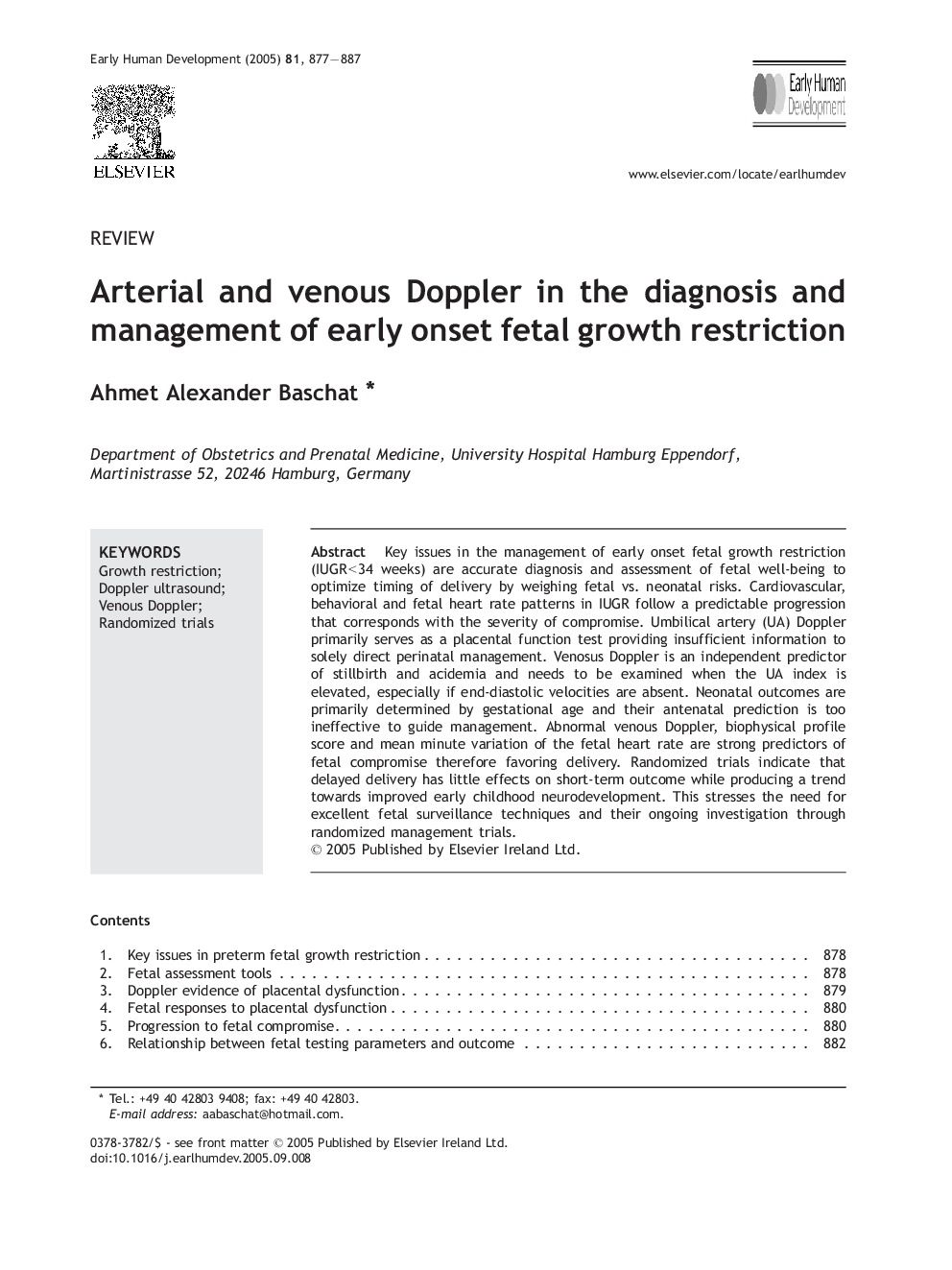| Article ID | Journal | Published Year | Pages | File Type |
|---|---|---|---|---|
| 9318718 | Early Human Development | 2005 | 11 Pages |
Abstract
Key issues in the management of early onset fetal growth restriction (IUGRÂ <Â 34 weeks) are accurate diagnosis and assessment of fetal well-being to optimize timing of delivery by weighing fetal vs. neonatal risks. Cardiovascular, behavioral and fetal heart rate patterns in IUGR follow a predictable progression that corresponds with the severity of compromise. Umbilical artery (UA) Doppler primarily serves as a placental function test providing insufficient information to solely direct perinatal management. Venosus Doppler is an independent predictor of stillbirth and acidemia and needs to be examined when the UA index is elevated, especially if end-diastolic velocities are absent. Neonatal outcomes are primarily determined by gestational age and their antenatal prediction is too ineffective to guide management. Abnormal venous Doppler, biophysical profile score and mean minute variation of the fetal heart rate are strong predictors of fetal compromise therefore favoring delivery. Randomized trials indicate that delayed delivery has little effects on short-term outcome while producing a trend towards improved early childhood neurodevelopment. This stresses the need for excellent fetal surveillance techniques and their ongoing investigation through randomized management trials.
Related Topics
Health Sciences
Medicine and Dentistry
Obstetrics, Gynecology and Women's Health
Authors
Ahmet Alexander Baschat,
